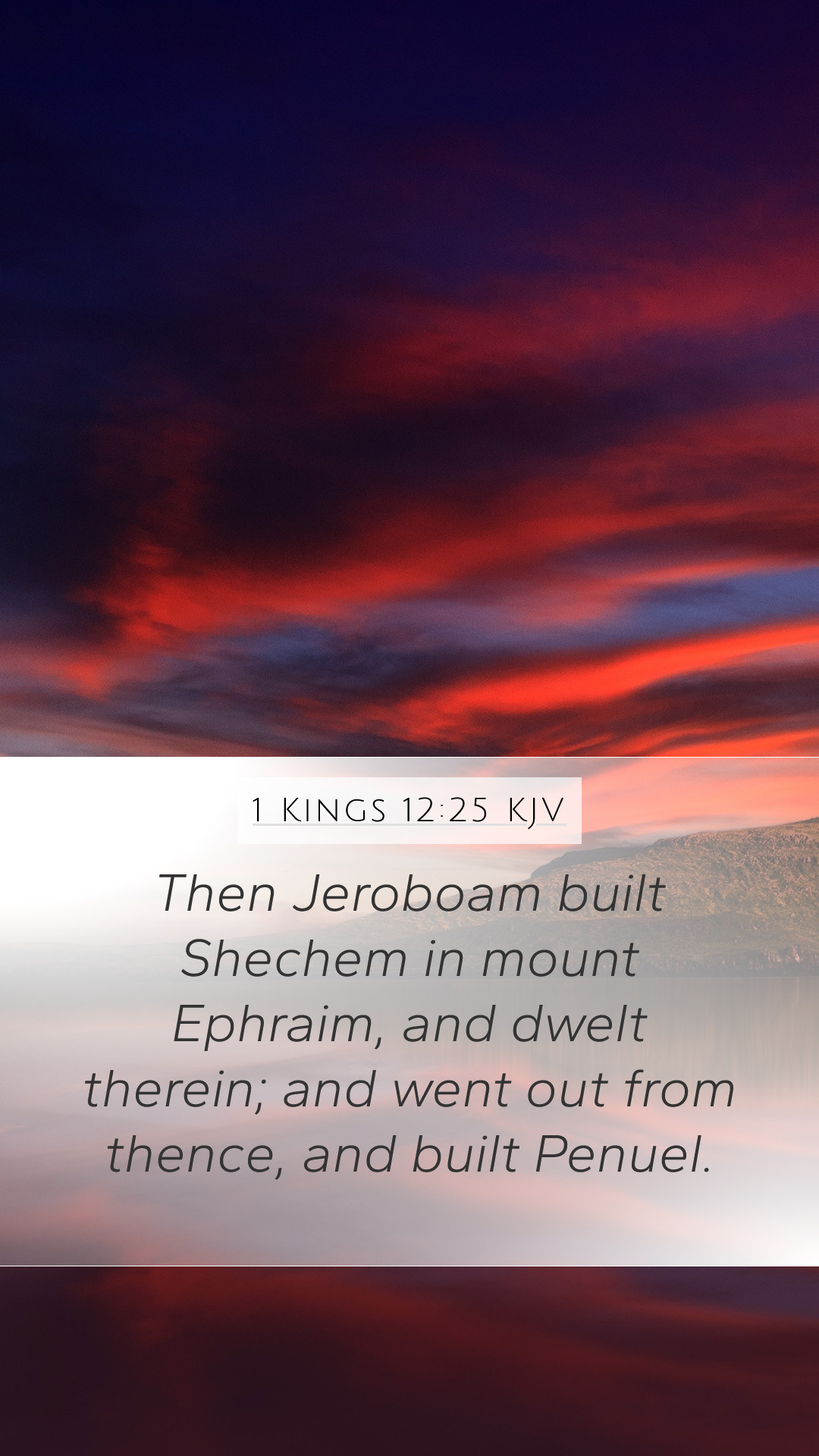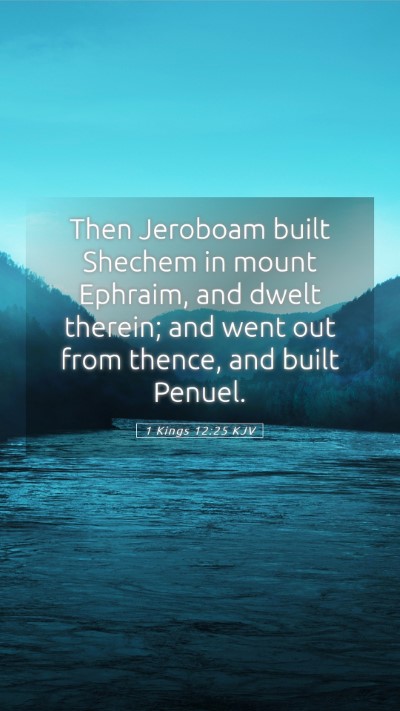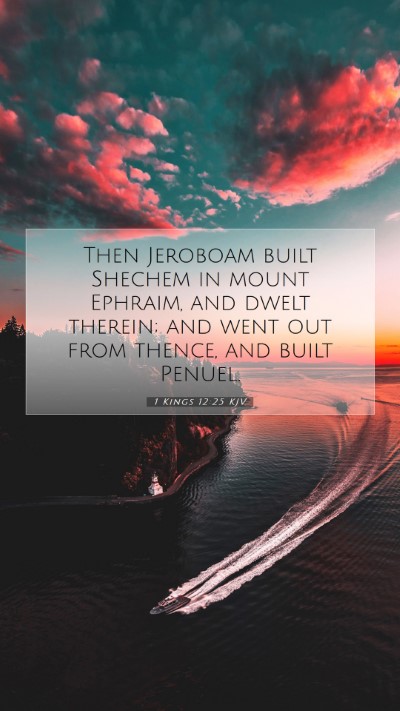Understanding 1 Kings 12:25
Bible Verse: 1 Kings 12:25 - "Then Jeroboam built Shechem in mount Ephraim, and dwelt therein; and went out from thence, and built Penuel."
Overview
This verse marks a significant moment in the history of Israel as Jeroboam, the first king of the northern kingdom of Israel, establishes his reign by building cities that become pivotal for his rule. The significance of these actions reflects deeper themes of leadership, sacrifice, and the consequences of disobedience to God.
Verse Meaning
This passage is critical for understanding the political and spiritual landscape of Israel during Jeroboam's reign. It entails more than a historical account; it offers insights into Jeroboam's motivations and the implications for Israel's future.
Commentary Insights
- Matthew Henry's Commentary: Henry suggests that Jeroboam's choice to build Shechem was strategic, as it was a central and historically significant location. Henry notes that this act signifies Jeroboam's desire to establish his kingdom securely away from the influence of Jerusalem, where the Temple was located, thus indicating a shift in worship practices.
- Albert Barnes' Notes: Barnes highlights that Jeroboam's construction of Penuel was indicative of his intent to fortify his kingdom. He implies that these cities served not only as military strongholds but also as symbols of Jeroboam's dedication to leading the northern tribes away from Davidic rule and the influence of the Temple worship in Jerusalem.
- Adam Clarke's Commentary: Clarke emphasizes the significance of the chosen locations. He explores the historical roots of Shechem as a covenantal site and notes that Jeroboam's actions reflect both political acumen and spiritual folly, as they lead the nation further from true worship.
Historical Context
Understanding 1 Kings 12:25 necessitates an exploration of the historical and cultural background of Israel at the time of Jeroboam. The division of Israel into two kingdoms—the northern kingdom led by Jeroboam and the southern kingdom led by Rehoboam—was a direct consequence of Solomon's policies that led to discontent among the tribes. Jeroboam's decisions also carry roots in the prophetic declaration that he would lead ten tribes.
Theological Implications
This verse is significant as it lays the groundwork for a major theological divide in the Israelite community. Jeroboam's actions directly challenge the established worship practices centered in Jerusalem. The creation of rival shrines and places of worship has reverberating effects on the spiritual allegiance of the people.
Practical Application
For contemporary readers, this verse prompts reflection on the importance of leadership and the impact of choices made by those in power. It challenges believers to consider the foundations of their faith and the influences that lead them toward or away from true worship and community. Additionally, it encourages personal examination of how leaders today may affect faith practices within their communities.
Cross References
- 1 Kings 12:20 - The division of the kingdom.
- 1 Kings 14:16 - Prophecy against Jeroboam's house.
- 2 Chronicles 10:1-19 - The account of Jeroboam’s rise to power.
Conclusion
In summary, 1 Kings 12:25 unveils the strategic and spiritual foresight of Jeroboam as he seeks to solidify his rule over Israel. Through commentary from notable scholars, we gain a well-rounded understanding of the implications of Jeroboam's constructions in Shechem and Penuel. This insight can aid individuals and Bible study groups alike in grasping the broader themes of leadership, faith, and the significance of maintaining a God-centered community amidst challenges.


